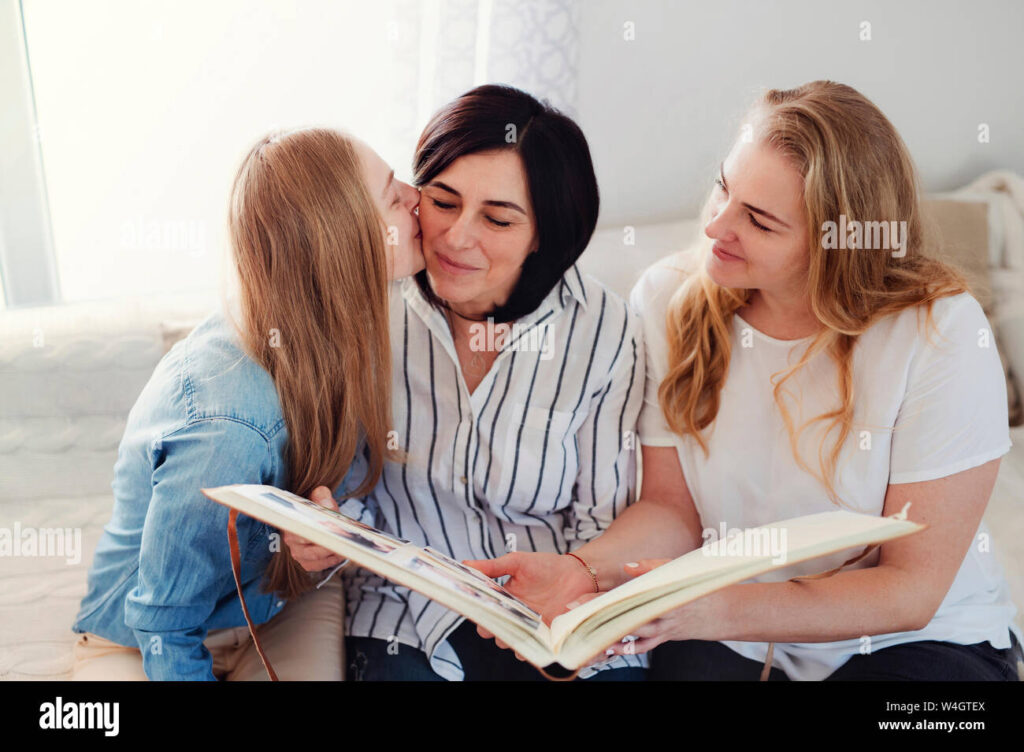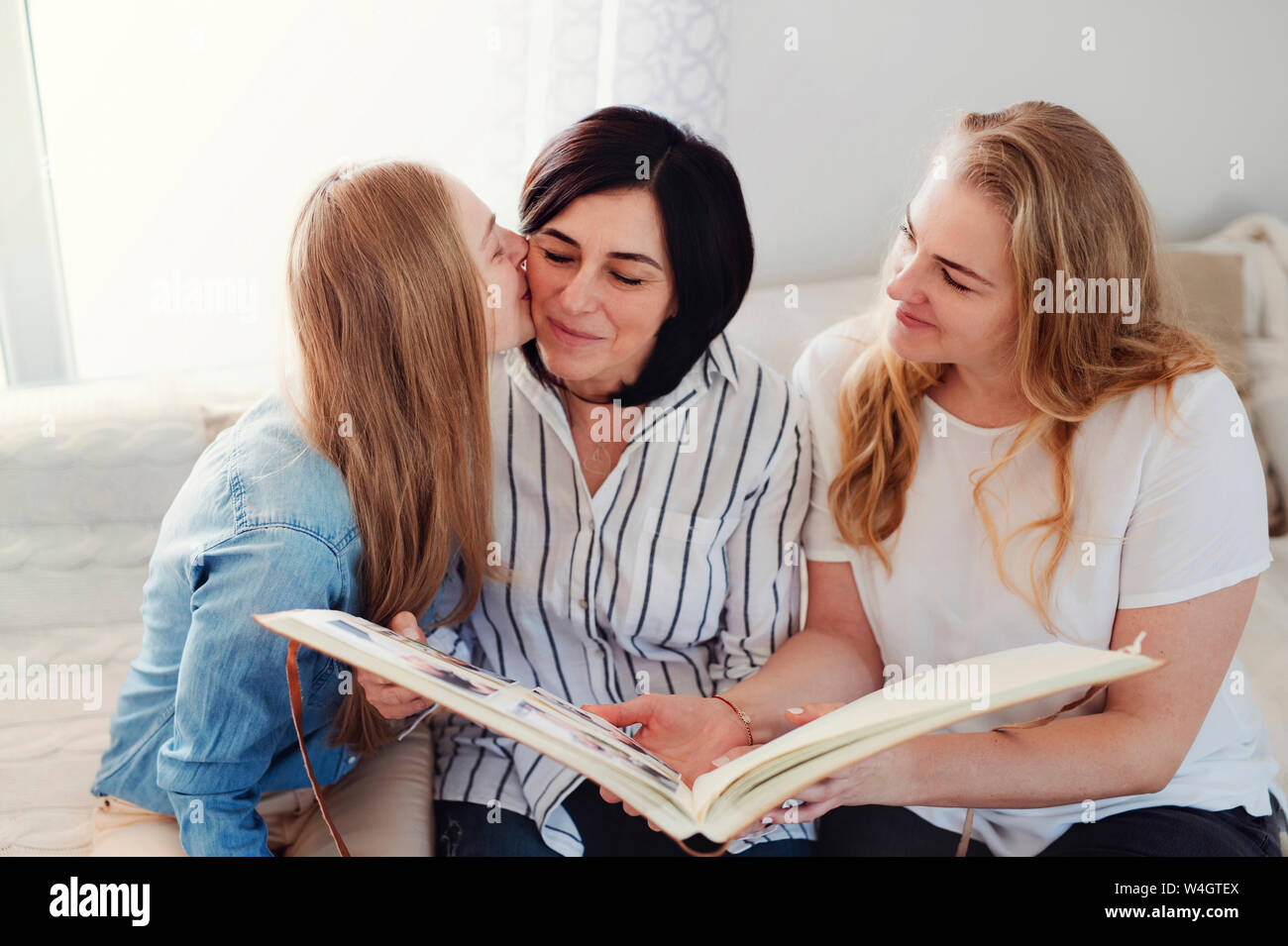
Navigating the Complexities: Understanding Grown Up Daughters and Their Mothers
The relationship between mothers and their grown up daughters is one of the most profound and intricate bonds in human experience. It’s a relationship that evolves through various stages, from the complete dependence of infancy to the complex independence of adulthood. While filled with love, support, and shared history, it can also be a source of conflict, misunderstanding, and emotional challenge. Understanding the dynamics at play is crucial for both mothers and grown up daughters to foster healthy, fulfilling relationships.
This article delves into the multifaceted nature of the mother-grown up daughter relationship, exploring the common challenges, the potential for growth, and the strategies for building a stronger, more resilient connection. We’ll examine the impact of societal expectations, individual personalities, and life experiences on this vital bond.
The Evolving Dynamics of the Mother-Daughter Bond
The early years are typically characterized by a mother’s nurturing role, providing care, guidance, and a foundation of love. As daughters mature, the dynamic shifts. Adolescence brings a push for independence, often accompanied by conflict as grown up daughters strive to define their own identities, sometimes in direct opposition to their mothers’ values or expectations. This is a natural, albeit challenging, phase.
Adulthood presents a new set of complexities. Grown up daughters establish their own lives, careers, and families, leading to potential geographical distance and differing priorities. The mother’s role transitions from primary caregiver to advisor, confidante, and friend. However, this transition isn’t always smooth. Mothers may struggle to relinquish control or accept their daughters’ choices, while grown up daughters may feel burdened by their mothers’ expectations or needs.
Common Challenges in Mother-Grown Up Daughter Relationships
Several common challenges can strain the mother-grown up daughter relationship. These include:
- Communication Breakdown: Misunderstandings, passive-aggressive behavior, and a reluctance to express feelings openly can create distance and resentment.
- Unrealistic Expectations: Mothers may harbor expectations about their daughters’ lives, careers, or relationships that don’t align with their daughters’ desires. Conversely, grown up daughters may expect their mothers to provide unwavering support or approval, regardless of their choices.
- Boundary Issues: A lack of clear boundaries can lead to feelings of enmeshment or intrusion. Mothers may overstep by offering unsolicited advice or becoming overly involved in their daughters’ lives. Grown up daughters may struggle to assert their independence or set limits on their mothers’ involvement.
- Past Hurts and Resentments: Unresolved conflicts from childhood or adolescence can linger and resurface in adulthood, poisoning the relationship.
- Life Stage Differences: Mothers and grown up daughters may be at different stages of life with vastly different priorities and perspectives. This can lead to a lack of understanding and empathy.
- Control Issues: Sometimes mothers struggle to let go and allow their grown up daughters to make their own decisions, leading to tension and resentment.
The Impact of Societal Expectations
Societal expectations play a significant role in shaping the mother-grown up daughter relationship. Women are often socialized to prioritize relationships and maintain harmony, which can create pressure to conform to traditional roles and suppress conflict. Mothers may feel obligated to provide unconditional support and approval, while grown up daughters may feel compelled to meet their mothers’ expectations, even at the expense of their own well-being.
Furthermore, cultural norms around aging and caregiving can place additional strain on the relationship. As mothers age, grown up daughters may feel responsible for their care, leading to role reversal and potential resentment. Navigating these complex expectations requires open communication, mutual respect, and a willingness to challenge traditional norms.
Strategies for Building a Stronger Connection
Despite the challenges, the mother-grown up daughter relationship can be a source of immense joy, support, and fulfillment. Building a stronger connection requires effort, understanding, and a willingness to adapt. Here are some strategies for fostering a healthier, more resilient relationship:
- Open and Honest Communication: Create a safe space for expressing feelings, needs, and concerns without judgment. Practice active listening and strive to understand each other’s perspectives.
- Setting Healthy Boundaries: Establish clear boundaries to protect individual autonomy and prevent enmeshment. Respect each other’s limits and avoid overstepping.
- Empathy and Understanding: Try to see things from each other’s point of view. Acknowledge and validate each other’s feelings, even if you don’t agree with them.
- Forgiveness and Letting Go: Release past hurts and resentments. Focus on the present and future, rather than dwelling on past mistakes.
- Shared Activities and Interests: Find common ground and engage in activities that you both enjoy. This can create opportunities for bonding and connection.
- Seeking Professional Help: If communication is consistently difficult or conflicts are unresolved, consider seeking professional help from a therapist or counselor.
- Respecting Individual Differences: Acknowledge and accept each other’s unique personalities, values, and choices. Avoid trying to change each other.
- Quality Time: Make a conscious effort to spend quality time together, even if it’s just a phone call or a short visit.
The Importance of Self-Care
Maintaining a healthy mother-grown up daughter relationship also requires self-care. Both mothers and grown up daughters need to prioritize their own well-being and avoid becoming overly dependent on each other for emotional support. Engaging in activities that promote physical, emotional, and mental health can help individuals maintain a sense of balance and resilience, which in turn strengthens the relationship.
The Rewards of a Strong Mother-Daughter Bond
A strong and healthy mother-grown up daughter relationship offers numerous rewards. It provides a source of unwavering support, unconditional love, and shared history. It fosters a sense of belonging, connection, and understanding. It can also be a source of personal growth, as both mothers and grown up daughters learn from each other and challenge each other’s perspectives.
Ultimately, the mother-grown up daughter relationship is a lifelong journey of growth, adaptation, and connection. By understanding the complexities, addressing the challenges, and prioritizing open communication and mutual respect, mothers and grown up daughters can cultivate a bond that enriches their lives and provides a foundation of strength and support for years to come. [See also: How to Improve Family Communication] This relationship, while sometimes turbulent, is invaluable. A healthy relationship between grown up daughters and their mothers can positively impact all aspects of their lives.
The journey of motherhood and daughterhood is a continuous learning experience. Embrace the challenges, celebrate the joys, and cherish the bond that connects you. Remember that even with its complexities, the relationship between mothers and grown up daughters is a unique and precious gift. Often, grown up daughters find themselves mirroring behaviors they observed in their mothers, both positive and negative. Recognizing these patterns is a key step in fostering a healthier dynamic.
Furthermore, seeking external support through therapy or support groups can provide valuable tools and perspectives for navigating the complexities of this relationship. It’s a testament to the strength of women that these bonds can withstand so much and still flourish. The bond between grown up daughters and their mothers is truly special.

